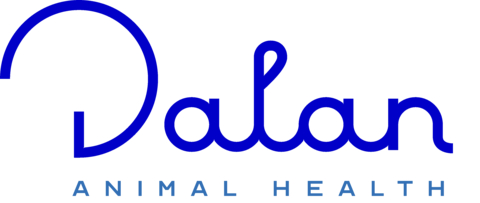Study Reveals First-Ever Insect Vaccine for Honeybees is Safe and Effective
Study Reveals First-Ever Insect Vaccine for Honeybees is Safe and Effective
ATHENS, Ga.--(BUSINESS WIRE)--Dalan Animal Health, Inc., a biotech company focused on insect health, today announced the results of the first-ever successful randomized placebo-controlled double-blinded trial study to demonstrate the safety and efficacy of the world's first vaccine for honeybees.
Honeybees are a critical component of agriculture. One-third of all foods rely on pollination, and commercial hives are essential to secure high crop yields. However, honeybees are plagued by diseases worldwide, with previously no safe and sustainable solution for disease prevention.
"This is a big step for sustainable agriculture worldwide," says Annette Kleiser, CEO of Dalan Animal Health. "Honeybees are such an important link in our food supply chain, But the industry is at a breaking point. It lacked all the modern animal care and welfare tools available to other agriculture sectors. We are proud that we opened the door to this new animal health sector."
Dalan Animal Health and the research team at Karl-Franzens University in Graz, Austria, have built upon decades of research to create the first honeybee vaccine. The vaccine protects honeybees from American Foulbrood through transgenerational immune priming, where the maternal organism can transfer immunity to a pathogen onto the next generation.
The study, published in Frontiers of Veterinary Research, followed a trial design commonly used in animal vaccine efficacy trials to demonstrate lab safety and efficacy using a heterologous challenge strain. Queen honeybees at two different sites were vaccinated with a placebo or the bacterin, randomized, and placed into their hive to begin laying eggs. Since hives cannot be infected in the wild due to the lethal and highly contagious nature of the disease, the resulting larvae form vaccinated, and placebo hives were brought to the lab and exposed to highly infectious spores of American Foulbrood for multiple days, then survival was assessed. The researchers observed a significant increase in disease resistance in the offspring of vaccinated queens in this laboratory setup. To read more about the study and its results, please visit: https://www.frontiersin.org/articles/10.3389/fvets.2022.946237/full.
Results of the study indicate that insect TGIP can greatly enhance colony health, protect commercial pollinators from deadly diseases, and reduce high financial and material losses to beekeepers with no adverse effect on the health of the queen bee. The data also presents broader implications for managing several diseases for organisms with the same immune mechanisms, such as mealworms and shrimp.
The study was designed and funded by Dalan Animal Health, a biotech startup based in Athens, Georgia, focusing on developing biotherapeutic solutions for honeybee health. The study was conducted in partnership with the Karl-Franzens University in Graz, Austria, and the Beekeeping and Agro-environmental Research Center at the Castilla-La Mancha Regional Institute for Agrifood and Forestry Research and Development (CIAPA-IRIAF) in Marchamalo, Spain.
Large-scale field efficacy pilot trials are underway as Dalan Animal Health seeks to bring to market the first-ever USDA-CVB-licensed insect vaccine for honeybees. The company aims to have the vaccine available in the US in 2023 and will seek approval in Canada and Europe.
About Dalan Animal Health, Inc
Dalan Animal Health (www.dalan.com) seeks to prevent diseases that affect invertebrates to increase the profitability and yield of producers worldwide. The company will use its platform technology to develop vaccines for other honeybee diseases and underserved industries, such as shrimp, mealworms, and insects used in agriculture. The company's headquarters is in Athens, Georgia, at the University of Georgia's Innovation Hub.
Contacts
Ian Murphy
Media Relations Representative
press@dalan.com
(310) 689-6397
